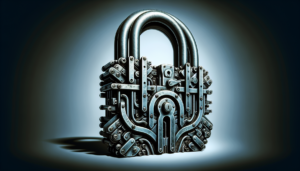
In times of crisis, the human mind undergoes a remarkable shift, as it seeks to adapt and survive amidst turmoil. Understanding the psychological aspects of surviving a crisis is crucial not only for individuals directly affected, but also for those assisting and supporting them. This article sheds light on the intricate workings of the human psyche during times of crisis, exploring the wide range of emotions, cognitive responses, and coping mechanisms that come into play. By delving into the complexities of psychological survival, we can develop a deeper understanding of how to effectively navigate and overcome adversity.
Emotional Responses to Crisis
Shock and disbelief
During a crisis, it is common to experience a sense of shock and disbelief. Your mind may struggle to accept the reality of the situation, leading to a feeling of being overwhelmed or numb. This initial emotional response serves as a defense mechanism, allowing you time to process and come to terms with the crisis.
Fear and anxiety
The uncertainty and potential danger associated with a crisis often provoke intense fear and anxiety. Your mind may become consumed with worries about personal safety, the well-being of loved ones, or the future. This heightened state of anxiety can be mentally exhausting and impact your ability to concentrate or make rational decisions.
Sadness and grief
Crisis situations can bring about a profound sense of sadness and grief. Whether you are mourning the loss of a loved one, the destruction of your home, or the loss of a job, processing these emotions takes time and energy. It is important to allow yourself to grieve and seek support from others who can provide comfort during this challenging time.
Anger and frustration
Feelings of anger and frustration are not uncommon during a crisis. You may be angry at the circumstances that led to the crisis, at others you perceive as responsible, or even at yourself. These emotions can manifest as irritability and impatience, making it important to find healthy outlets for expressing and managing anger.
Confusion and disorientation
In the midst of a crisis, it is common to feel confused and disoriented. Rapid changes in circumstances, conflicting information, and a disrupted routine can all contribute to this sense of confusion. It may be difficult to make decisions or understand what steps to take next. Seeking clarity and relying on trusted sources of information can help alleviate these feelings.
Cognitive Effects of Crisis
Difficulty concentrating
Crisis situations can make it challenging to concentrate or focus on tasks. Your mind may be preoccupied with worries or intrusive thoughts related to the crisis, making it difficult to pay attention to the present moment. This cognitive effect can impact your ability to carry out daily responsibilities and can contribute to feelings of frustration and overwhelm.
Memory problems
Memory problems are another cognitive effect that can arise during a crisis. Stress and anxiety can interfere with your ability to encode new information or retrieve previously stored memories. You may find it difficult to remember important details or experiences related to the crisis, leading to increased frustration and a sense of cognitive impairment.
Intrusive thoughts and flashbacks
Intrusive thoughts and flashbacks can be particularly distressing cognitive effects of a crisis, especially if it involved a traumatic event. You may find yourself repeatedly reliving the experience, even when you try to avoid thinking about it. These intrusive thoughts and flashbacks can disrupt your daily life and contribute to heightened anxiety and emotional distress.
Hypervigilance
Hypervigilance is a cognitive reaction commonly seen in individuals who have experienced a crisis. This heightened state of alertness can lead to constant scanning of the environment for potential threats or dangers. While it can serve as a protective mechanism, hypervigilance can also be mentally exhausting and contribute to feelings of anxiety and stress.
Denial and avoidance
In some cases, individuals may cope with the cognitive effects of a crisis by engaging in denial and avoidance. This defense mechanism involves minimizing or avoiding thoughts, feelings, or reminders associated with the crisis. While it may provide temporary relief, denial and avoidance can hinder the healing process and prevent the necessary psychological processing of the event.
Behavioral Reactions in Crisis
Change in sleep patterns
Crisis situations can disrupt sleep patterns, leading to difficulties falling asleep or staying asleep. The heightened emotional and cognitive response to the crisis can make it challenging to relax and quiet the mind at night. Conversely, some individuals may experience an increase in sleep as a way to escape from the stress and emotional turmoil associated with the crisis.
Appetite fluctuations
Changes in appetite are commonly observed during a crisis. Some individuals may experience a decrease in appetite, leading to weight loss and nutrition deficiencies. Others may turn to food for comfort and experience an increase in appetite, resulting in weight gain. These fluctuations can be attributed to stress and emotional upheaval associated with the crisis.
Social withdrawal
During a crisis, it is not uncommon to experience social withdrawal. The overwhelming emotions and challenges faced can make it difficult to engage in social interactions or maintain relationships. This withdrawal can lead to feelings of isolation and a lack of support, intensifying the emotional impact of the crisis.
Increased substance use
In response to the stress and emotional turmoil of a crisis, some individuals may turn to substances as a way to cope. Alcohol, drugs, or even prescription medications may be used to numb painful emotions or temporarily escape from the reality of the situation. However, increased substance use can exacerbate the negative effects of the crisis and lead to additional problems.
Restlessness and agitation
Restlessness and agitation are behavioral reactions commonly observed during a crisis. The emotional and cognitive turmoil can manifest as a constant need to move or an inability to relax. This restless state can contribute to increased irritability and a sense of being on edge, further exacerbating the overall impact of the crisis on your well-being.
Psychological Impact on Relationships
Strain on social support
Crisis situations can place a significant strain on social support networks. Friends, family, or other support systems may also be affected by the crisis, making it challenging to provide the usual level of support. This strain in social support can lead to feelings of isolation and loneliness, increasing the psychological burden of the crisis.
Conflict and tension
The intense emotions and challenges associated with a crisis can lead to increased conflict and tension in relationships. Stress can magnify pre-existing issues, and disagreements may arise due to differences in coping strategies or opinions related to the crisis. Managing conflict effectively becomes crucial to maintaining healthy relationships during this difficult time.
Increased dependence
Individuals may become more reliant on others for support and assistance during a crisis. The overwhelming emotions and challenges can make it difficult to navigate daily life independently. This increased dependence can both strain relationships and provide an opportunity for enhanced connection and support from loved ones.
Changes in intimacy
Crisis situations can impact the level of intimacy in relationships. The emotional toll of the crisis may result in decreased emotional or physical intimacy as individuals grapple with their own emotional well-being. Alternatively, the shared experience of the crisis can also strengthen and deepen intimacy as individuals lean on one another for support and understanding.
Effects on parenting
Crisis situations can significantly impact parenting and the parent-child relationship. Increased stress and emotional upheaval can make it challenging for parents to provide the usual level of care and support to their children. Children may also experience their own emotional difficulties as they try to understand and cope with the crisis.
Effects on Mental Health
Risk of developing mental disorders
Experiencing a crisis can increase the risk of developing mental disorders. The intensity and duration of the crisis, as well as individual vulnerabilities, can contribute to the development of conditions such as depression, anxiety disorders, or post-traumatic stress disorder (PTSD). It is important to be aware of the potential impact on mental health and seek professional help if needed.
Post-traumatic stress disorder (PTSD)
Crisis situations involving trauma can lead to the development of PTSD. This condition is characterized by intrusive thoughts, flashbacks, nightmares, and intense anxiety related to the traumatic event. The symptoms of PTSD can significantly impact daily functioning and quality of life, requiring specialized treatment and support.
Depression and anxiety disorders
Depressive symptoms and anxiety disorders frequently emerge or worsen during and after a crisis. The emotional toll, as well as the cognitive and behavioral reactions to the crisis, can contribute to the development of these mental health conditions. Seeking appropriate professional support and treatment is crucial for managing depression and anxiety disorders effectively.
Substance abuse and addiction
Crisis situations can also increase the risk of substance abuse and addiction. Individuals may turn to drugs or alcohol as a way to cope with the emotional pain or escape from the reality of the crisis. Substance abuse can further exacerbate the psychological impact of the crisis and require specialized treatment to address both the substance use and the underlying crisis-related issues.
Self-harm and suicidal ideation
In cases of severe distress and emotional overwhelm, individuals may experience thoughts of self-harm or suicide. The intense emotional pain and a diminished sense of hope can contribute to a sense of desperation. It is crucial to recognize these warning signs and seek immediate professional help to ensure the safety and well-being of individuals in crisis.
Coping Mechanisms in Crisis
Seeking social support
During a crisis, reaching out to trusted individuals for emotional support can be incredibly valuable. Talking to friends, family, or a therapist can provide a safe space to process emotions, gain perspective, and receive guidance. Engaging with others who have experienced similar crises through support groups or online communities can also be beneficial.
Engaging in self-care activities
Engaging in self-care activities is crucial for managing the psychological impact of a crisis. Prioritizing activities that promote relaxation, such as exercise, meditation, or hobbies, can help reduce stress and promote emotional well-being. Taking breaks, pursuing interests, and practicing self-compassion are all integral aspects of self-care during a crisis.
Maintaining daily routines
Maintaining daily routines can provide stability and a sense of normalcy amidst the chaos of a crisis. While it may be tempting to withdraw or abandon normal activities, sticking to familiar routines can help regulate emotions and provide a sense of control. Establishing a daily structure can also contribute to improved sleep patterns and overall well-being.
Practicing mindfulness and relaxation techniques
Mindfulness and relaxation techniques can be effective coping mechanisms during a crisis. Mindfulness involves intentionally focusing on the present moment, allowing you to detach from distressing thoughts or emotions. Incorporating relaxation techniques, such as deep breathing exercises or progressive muscle relaxation, can further promote a sense of calm and reduce anxiety.
Expressing emotions through art or writing
Engaging in creative outlets, such as art or writing, can provide an avenue for expressing and processing emotions during a crisis. Painting, drawing, journaling, or poetry can help individuals externalize intense feelings and make sense of their experiences. These creative activities can serve as cathartic tools for self-expression and emotional healing.
Resilience and Growth after Crisis
Psychological resilience
Psychological resilience refers to an individual’s ability to adapt and recover after a crisis. While the psychological impact of the crisis may be significant, resilience allows individuals to bounce back and regain a sense of well-being. Building resilience involves developing coping strategies, seeking support, and maintaining a positive outlook despite adversity.
Post-traumatic growth
Post-traumatic growth is a phenomenon where individuals experience positive changes in their lives following a crisis. Going through a crisis can lead to personal growth, increased self-awareness, and a newfound appreciation for life. The recovery process can foster resilience and open new possibilities for self-discovery and personal development.
Finding meaning and purpose
Crisis situations often prompt individuals to reevaluate their priorities and search for meaning and purpose. While the crisis may be disruptive and challenging, it can also provide an opportunity for reflection and redefining personal values. Focusing on what truly matters and aligning actions with core beliefs can contribute to a sense of purpose and fulfillment.
Rediscovering personal strengths
Surviving a crisis can allow individuals to discover strengths and capabilities they may not have recognized before. Dealing with adversity often requires individuals to tap into their resilience, problem-solving skills, and inner resources. Recognizing and embracing these personal strengths can enhance self-confidence and contribute to post-crisis growth.
Positive changes in relationships
Crisis situations can bring individuals closer together and deepen relationships. Shared experiences can foster empathy, understanding, and increased levels of support. Nurturing and prioritizing these relationships can lead to positive changes in communication, connection, and shared resilience.
Psychological Considerations for Different Types of Crisis
Natural disasters
Natural disasters can have profound psychological effects, including high levels of anxiety, trauma symptoms, and long-lasting emotional distress. The unpredictability and uncontrollable nature of these events can result in post-disaster psychological challenges that require specialized support and interventions.
Traumatic events
Traumatic events such as accidents, violence, or acts of terror can have a significant impact on mental health. The psychological aftermath can include symptoms of PTSD, depression, anxiety, and difficulties in daily functioning. Timely access to mental health services and trauma-informed care are crucial for individuals affected by traumatic events.
Serious illnesses or injuries
Dealing with serious illnesses or injuries can lead to emotional distress and psychological challenges. The uncertainty surrounding diagnosis, treatment, and prognosis can cause anxiety, depression, and adjustment difficulties. Supportive healthcare providers, open communication, and access to mental health services are crucial for addressing psychological aspects of coping with serious illnesses and injuries.
Loss of loved ones
The loss of a loved one is a highly distressing and life-altering event. Grief reactions can vary from person to person, but common psychological aspects include shock, denial, sadness, and anger. The support of family, friends, and grief counselors can be invaluable in navigating the grieving process and finding ways to honor and remember the deceased.
Financial crises
Financial crises can have a profound impact on mental well-being. The stress and uncertainty surrounding financial difficulties can lead to anxiety, depression, and a sense of hopelessness. Seeking financial guidance, engaging in self-care, and seeking emotional support from loved ones can help individuals navigate the psychological aspects of financial crises.
Effects on Children and Adolescents
Developmental impact
Crisis situations can significantly impact the development and well-being of children and adolescents. Depending on their age and cognitive abilities, children may struggle to understand and process the crisis, leading to increased anxiety and emotional distress. The disruption of routines, social isolation, and limited access to support can impede normal developmental milestones.
Increased vulnerability
Due to their reliance on adults for safety and security, children and adolescents are often more vulnerable during a crisis. They may be exposed to increased stress and uncertainty, leading to emotional and behavioral difficulties. Recognizing signs of distress in children and providing appropriate support and guidance is crucial for their well-being.
Trauma symptoms
Children and adolescents who experience crises, particularly those involving trauma, may exhibit trauma symptoms. These symptoms can include nightmares, re-enactment of the event through play or drawings, changes in behavior, difficulty concentrating, and emotional dysregulation. Early intervention, trauma-informed care, and the support of mental health professionals are essential for recovery.
Educational challenges
Crisis situations can also have a significant impact on educational attainment and performance. Disruptions to regular schooling, changes in routines, and the emotional toll of the crisis can impede learning and attention. Providing additional support, creating structured environments, and implementing appropriate educational interventions can help mitigate these challenges.
Parental guidance and support
Parents play a critical role in helping children and adolescents navigate the psychological aspects of a crisis. Providing emotional support, open communication, and age-appropriate information can help children make sense of the crisis and cope with their emotions. Parents should also seek their own support systems to ensure they can provide stability and guidance during this challenging time.
Conclusion
Surviving a crisis entails navigating a wide range of psychological aspects. Emotional responses such as shock, fear, sadness, anger, and confusion are common during a crisis. The cognitive effects can manifest as difficulties concentrating, memory problems, intrusive thoughts, hypervigilance, and denial. Behavioral reactions may include changes in sleep patterns, appetite fluctuations, social withdrawal, increased substance use, and restlessness. Relationships can be strained by the crisis, leading to conflict, increased dependence, changes in intimacy, and effects on parenting. The effects of a crisis on mental health can include an increased risk of developing mental disorders such as PTSD, depression, anxiety disorders, substance abuse, and self-harm. Coping mechanisms such as seeking social support, engaging in self-care, maintaining daily routines, practicing mindfulness, and expressing emotions through art or writing can aid in managing the psychological impact. Resilience and post-traumatic growth can lead to finding meaning, rediscovering personal strengths, and positive changes in relationships after a crisis. Different types of crises, such as natural disasters, traumatic events, serious illnesses or injuries, loss of loved ones, and financial crises, have specific psychological considerations. Finally, the impact of a crisis on children and adolescents can be substantial, affecting their well-being, development, and education, necessitating parental guidance and support. By understanding and addressing the psychological aspects of surviving a crisis, individuals can move towards recovery and growth.






